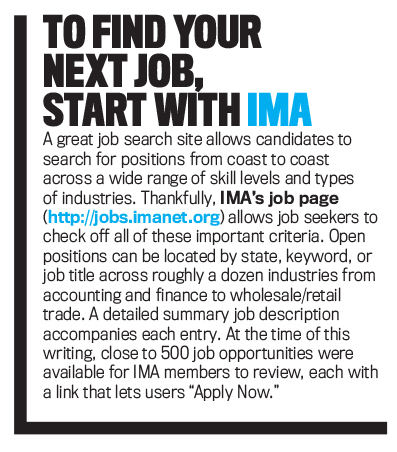But as workplace dynamics have changed, promoting your own career via other opportunities has become the new paradigm and, for many, a necessity. While you may know your job inside and out, there’s a good chance you’ve never been educated or trained in how to perform one of the most important skills you need to advance your career—how to sell yourself.
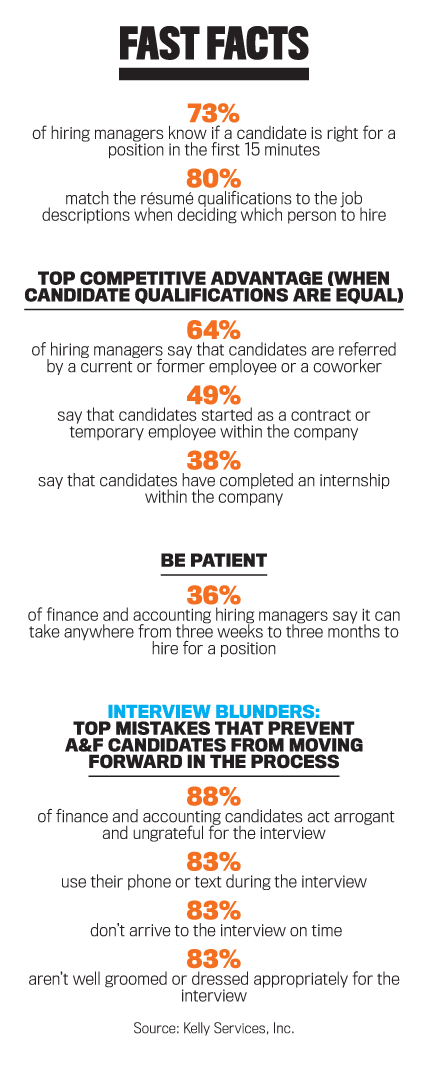
As professionals in the world of recruiting and placing talent, we can help you avoid making some of the job search and interviewing mistakes we hear about most often from human resource and talent professionals so you can increase your chances of finding and landing a new job. Let’s take a look at 10 things you should do as you work through the process of securing a new position.
-
DEVELOP A STRONG NETWORK
Given the amazing technology at our fingertips, it’s easy to default to online postings or job boards when looking for a new job. But our experience tells us that this method often leads to a dead end.
Search engines can put you in contact with thousands of potential positions in a matter of seconds. But if you’re seeing them, so are thousands of other folks just like you, which could lessen your odds of being chosen from a vast pool of talent applying for the same job. In fact, according to the results of a CareerXroads survey reported on in U.S. News & World Report, just 15% of people find jobs through ads.
A much more effective method of locating that next great opportunity would be tapping into your personal network of friends, coworkers, and relatives to mine leads and make connections on a regular basis. They could be friends, people you know at other companies, former college roommates, or even the person you talk to on the subway, train, or bus every day on your way to work. Someone you know probably knows someone who is looking to hire, and being recommended for a position directly is without a doubt one of the best ways to land an interview (U.S. News & World Report estimates that 70% of people find jobs through networking).
Using a professional recruiter to help you locate that next great opportunity is also worth considering. A recruiter can help you with things like salary negotiations, company and hiring manager information, interview preparation and debriefings, and interviewing tips. (For more, see “9 Things a Talent Professional Can Offer.”)
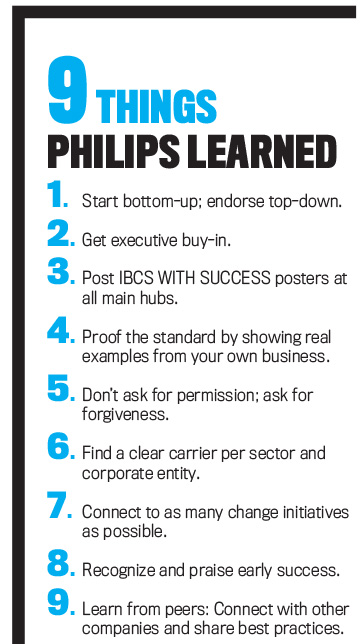
Networking should be ongoing, so try to stay connected with your contacts over time and not just when you need something from them. It’s truly one of the most critical parts of the job search process.
-
TAKE TIME TO CRAFT YOUR RÉSUMÉ
There are certainly many ways to put together a résumé, and as talent professionals we’ve probably seen them all. It’s always smart to make sure the style and formatting are tailored to the type of profession you’re in or want to enter. For example, someone seeking a job in a creative field will probably have more freedom to “design” a résumé to match that industry’s more visual orientation. If you’re searching within a more conservative profession like accounting or finance, you’ll want to keep your résumé on the more conservative side. But no matter what your industry, there are a few do’s and don’ts that apply across the board.
For example, too often candidates list job duties on their résumés but don’t sell themselves for the position. Hiring managers want to know how you can help their company in tangible ways. Refer to accomplishments on your résumé, and be ready to describe to your interviewer any problems you’ve encountered, the action you took in response, and the result. Think of them as “case studies” for you. In addition, make sure all the information is accurate, spelled correctly, and proofed—and proofed again. Never include anything that’s misleading, and don’t put anything on the résumé that can’t be verified.
Most employers prefer a digital/electronic résumé on which you list your positions chronologically. You’ll also want to keep your résumé to one page if you’re newer to your industry or two if you’re more experienced. It’s a good practice, too, to limit it to your last 10 years of work history.
Finally, take the time to tailor your résumé to the position you’re applying for. This is more crucial than ever since everyone is doing more with less in the workplace. You have a shorter amount of time to make an impression, and tailoring your résumé gets right to the point. Using this approach with each position you apply for shows the company that you’re detail oriented and understand the importance of a good work product.
-
DO YOUR HOMEWORK
Of course, no matter how impressive your résumé, a great interview is still the key to landing your dream job. If you’re fortunate enough to get past the screeners and are called in for a meeting, here are some key areas to concentrate on beforehand:
Walk the interviewer through your résumé. Interviewers typically expect you to give a clear and succinct overview of each section. Use the mantra “made, saved, and achieved” to help guide you through this process. In other words, what did you do to make the company money, save the company time, or achieve a professional or company goal? Then you can get into your specific skills.
Match your skills to the position. Understand how your experience, skills, background, and aspirations relate to the position. Interviewers want to understand how your accomplishments will translate into their company’s environment, so be prepared to give clear examples of specific situations in which your contributions made a real difference.
Play to your strengths. Identify areas where you can offer the most value. For example, if you’re adept at keeping up with the rules and regulations that dictate what you can or can’t do in your industry and as a company, make this known to the interviewer.
Don’t ignore your shortcomings. Remember, no one’s perfect. If you have a particular weakness, be honest and share the specific steps you’re taking to improve yourself. Describe a situation in which you put your improvement plan into action and what the result was.
Expand on your résumé. Use the interview to explain the “why” and “how” behind your accomplishments or to share new accomplishments not highlighted on your résumé.
Share your goals. Talk about your short- and long-term career goals. Interviewers want to know you’re career minded and not just looking for a job.
Part of doing your homework also involves researching the company you’ve applied to. This shows that you’re prepared and serious about the position. A company’s website will often include information on the history of the organization as well as its vision, mission, and goals. If the company is publicly traded, its annual reports can provide an overview of its products, services, and finances.
-
UNDERSTAND THE RECRUITING PROCESS
While it may seem counterintuitive, your primary objective when going in for a first interview with a prospective employer isn’t really landing the job you’re after. What you really should be concentrating on is getting called back for a second interview (unless, of course, you’ve already made it to the final interview). Your first meeting most likely will be with the firm’s HR professional, who will then decide whether to move you on to the next steps in the vetting process—namely, interviewing with the company managers specifically involved with the position you’re hoping to fill.
To reiterate a previous point, prepare for that first meeting by doing your homework—not just on the people you’re meeting with, but on the company in general—to make a great impression every step of the way. Statistics show that the person who’s best prepared and sells himself or herself effectively in the interview receives the offer 86% of the time.
All too often candidates go into first interviews focused simply on getting the job without doing all the little steps that are necessary to get past the first stages of the screening process successfully. It’s important to make sure that your professional and career goals align with the company’s mission. Therefore, focus on questions that relate not only to your position and making a positive first impression (remember the old saying about never getting a second chance!) but also those that allow you to determine if the company is the right fit for you. Think of it as you interviewing the company that’s interviewing you. The night before, write down at least 10 questions about the position, the company, and the people you’d be working with. Ask about the culture, who thrives there, what a typical day is like, and how performance is measured.
-
KNOW HOW TO ACE THE INTERVIEW
Congratulations, you’ve made it to the actual interview stage of the game! Now the real work begins. Again, the first thing to remember is that this is your chance to be the salesperson of you. In other words, you have to sell yourself and bring the person on your résumé to life. So take advantage of the opportunity to get in front of decision makers and make them certain they’ve found just the person they need. A recent Kelly Services GetHired survey we conducted with finance and accounting hiring managers showed that 73% of them know if a candidate is right for the position within the first 15 minutes of an interview.
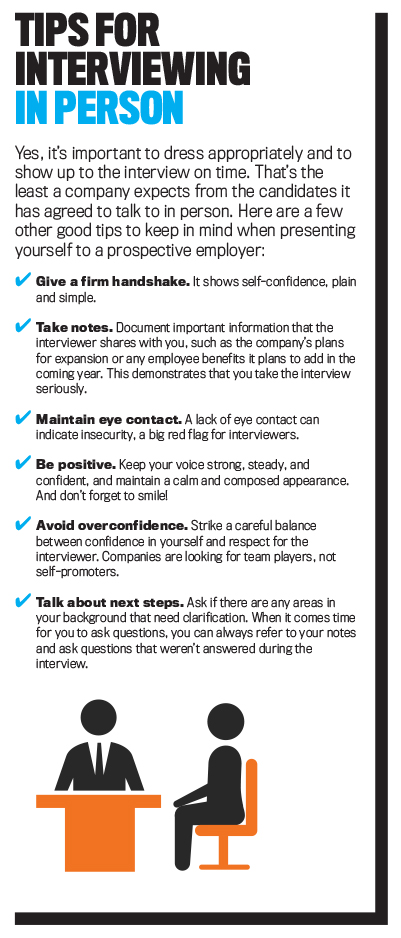
More than likely, before you actually sit down to talk with someone, you’ll be handed an application to fill out. While this can be a time-consuming task, take it as seriously as any other part of the process. Make sure to follow instructions and fill out the entire application. If you’re asked to list your skills and qualifications, do it. (Don’t just jot down “see résumé.”) This will help you in an interview since your relevant experience is fresh in your mind because you just took the time to write it down.
It’s common for candidates in an interview to list their job duties the way they’ve done on their résumé instead of selling themselves as problem-solving experts. But hiring managers want to know what value (there’s that word again!) you bring to the table, so take every opportunity to talk about problems you’ve faced in the past and how you handled them effectively. Use the technique of situation, action, and result (SAR, for short) to explain the problems and situations you’ve faced in the past. In other words, talk about the issue that created the problem or situation, discuss the actions you took to remedy it, and, finally, talk about the results of those actions. Presenting yourself as a proactive thinker and doer is a must at every stage of the process, so be ready to do so over and over again.
It’s important to be enthusiastic, but don’t be cloying or fake. Be you. No matter what, you want to come across as genuinely intrigued by the opportunity at hand.
-
DON’T BRUSH OFF A PHONE INTERVIEW
It isn’t uncommon for first interviews to be conducted over the phone, especially for positions located far from where you live. While it may seem to be a more casual way to do this, phone interviews are still the HR professional’s chance to screen you the same ways as if you were sitting down across from them. So don’t let your guard down, and stay sharp. The good news? If you follow the same guidelines we’ve outlined above, you can ace these particular tests and move on to the all-important second interview.
While a phone interview can be done from the comfort of your home or office, there are some things to keep in mind. The number one rule is to find a quiet place where you won’t be interrupted. Distractions such as barking dogs, ringing phones, or screaming kids in the background are a sure way to make a poor first impression. Here are a couple of other things to keep in mind:
Show enthusiasm. The first 15 seconds of a phone interview are critical, and the way you answer the phone is important. Speak clearly, distinctly, and with confidence.
Establish a connection. Ask about the interviewer’s experience with the company or mention something interesting you’ve read about the company.
Confirm information. At the close of the interview, be sure to confirm the interviewer’s title, name spelling, and street or email address. Then use this information to send a thank-you note or email. (More on this later.)
-
DRESS APPROPRIATELY
In an era where some people consider flip-flops to be fine footwear, it bears repeating that how you dress sends a powerful visual message about you to whomever you meet. You wouldn’t wear club attire to a black-tie event, so don’t dress down for a job interview. Once again, know your audience. It’s always a good idea to go with conservative dress, especially when we’re talking about fields like accounting and finance. Clean and buttoned-down sends a message of efficiency and intelligence.
Remember, too, to turn off your phone. If you smoke, don’t light up before an interview—the smell will cling to you no matter what you do. And keep accessories, makeup, and cologne to a minimum. Know your industry, and err on the side of professionalism.
What’s the one thing you can wear that works every time and in every situation? A smile. Remember to be warm and courteous to everyone you meet, from the parking lot attendant when you arrive, to the receptionist at the front desk, to the admin who walks you into the interview room. Believe it or not, many companies will check with the front desk after you’ve left to see how you interacted with the person there. We once had an experience where an applicant was rude to a woman at the receptionist desk, and we only later found out that she was the owner of the company, who was filling in while the regular receptionist was out for lunch. No, things did not turn out well.
-
REHEARSE YOUR ANSWERS AHEAD OF TIME
Interviewers will typically ask questions about your past employment, your current position and responsibilities, and your long-term career goals. Respond truthfully and with an upbeat, confident tone. Avoid negative answers; instead, emphasize the positive. Focus on your professional accomplishments, and make your answers concise but informative, always thinking in terms of situation, action, and result.
It’s a very good idea to rehearse your answers ahead of time. Good interviewers have a knack for getting applicants to relax and open up about what they’re looking for in a position. That’s their job, and real pros know not to scare off potential employees by being rigid or stern. It’s fine to feel comfortable when sitting down for the first time, and confidence can certainly help you in the process of selling yourself. But a word of caution: The last thing you want to do is gossip, go off on tangents, or bad-mouth your current or previous employer. Don’t share too much personal information about yourself, and don’t get too relaxed. Sit up straight, stay focused, and listen carefully.
-
ASK FOR THE JOB BEFORE YOU LEAVE
Here you can immediately see where you stand in the process. Assuming this is a great position for you and will further your career goals, ask for the job by simply saying something like, “I’m very interested in learning more about this opportunity and the organization, as well as curious as to the next steps and the overall time frame in the process.”
But don’t talk about salary or benefits. This discussion should always be a part of the interview process, of course, but the trick is figuring out when to broach the subject. Most companies will bring up the topic if they’re interested in you, but if it isn’t brought up, it should be addressed by either your external recruiter (who will know the salary range ahead of time) or in the initial phone screening (you don’t want to waste everyone’s time if the number isn’t close to what you’re looking for). If the interviewer asks you about salary, the appropriate response would be, “Obviously, I’m interested in the opportunity first and foremost. In my last/current company, however, I was/am making ___, and I’m sure we’ll come up with a number that will be acceptable to both of us.”
-
FOLLOW UP PROMPTLY
One of the most important parts of the interview process comes after it’s over: sending thank-you notes.
Make your note specific about the job and why you feel you’re a good fit. The trick? Keep it short and sweet. Send an email, letter, or note to each interviewer. Thank each of them for their time, and reiterate your interest in the position. Whether you decide to send a handwritten note, a typed letter, or an email depends on the conservative or casual nature of the company, the industry, and the level of the position, but email is always acceptable.
The body of the letter should accomplish four main objectives:
- Thanking the interviewers for their time,
- Reiterating interest and enthusiasm in the position and company,
- Highlighting relevant experiences and accomplishments, and
- Asking if you can proceed to the next step.
Also, be sure to review your note for errors, and have a friend or recruiter proofread it as well. (See a sample letter at the end of the article.)
This is an incredibly critical part of the process, yet candidates far too often forget it or ignore it. We advise following up as soon as possible and no later than 24 hours after the interview. This shows your interest and that you’re taking the process seriously. Keep in mind, depending on the level of the position, the typical time frame from the first interview to a job offer could be three to six weeks or even longer in some cases. So be patient.
There you have it: 10 interviewing do’s and don’ts that could make the difference between landing the position you want or missing a great opportunity. So do your homework, present yourself like a pro, ask questions, and follow up. You’ll be off and running!
A Sample Thank-You Letter
Dear Ms. Clark,
Thank you for taking the time to sit down with me and discuss ABC Company and the (insert position title) position in detail. Your insight was valuable in helping me understand not only the position and company but also the type of person that will be successful in this role. I feel my qualifications and skill set in (insert qualification, skills) reflect those necessary to succeed at ABC Company.
At XYZ Company, I successfully led a state-of-the-art system conversion on time and under budget, as well as managed a staff of 25 professionals. I’m confident that I have the experience and drive to successfully manage the (insert department name) department.
I’m truly excited about the opportunity as it will allow me to obtain my goals of (insert goal) and (insert goal).
I look forward to our next meeting to discuss this opportunity in greater detail.
Sincerely,
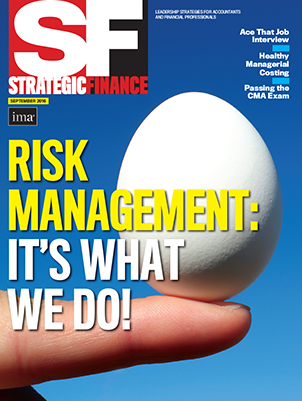
September 2016


